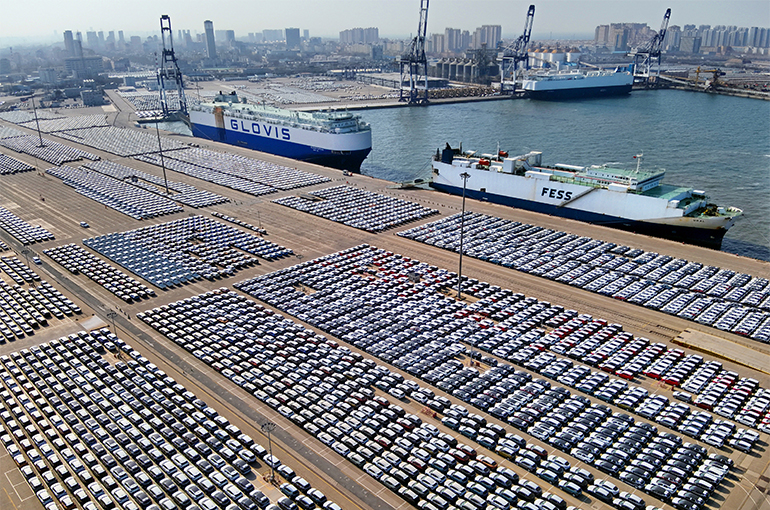 US, EU Tariffs on Chinese EV Imports Will Backfire
US, EU Tariffs on Chinese EV Imports Will Backfire(Yicai) June 25 -- The United States and the European Union have announced temporary tariffs on Chinese electric vehicles in the past month. The move will undoubtedly impact profits and jobs at Chinese carmakers, but will also negatively impact the US and the EU.
The new tariffs will increase the living costs of American and European households and slow the green transition in the US and EU as carmakers there will no longer need to cut prices to compete with their Chinese peers.
As a key tool for promoting the global shift to a low-carbon lifestyle, some degree of subsidies for electric cars is better than none. Assuming a sufficiently high global carbon tax cannot be implemented, EV subsidies should be even higher.
The US and EU choose to levy additional tariffs on imports of China-made EVs instead of increasing subsidies on locally made EVs partly because of fiscal pressures on their high debt.
There is an opinion that imposing tariffs will not be enough to contain Chinese auto exports to these markets, given China’s substantial cost advantages. But that does not take into consideration two major issues.
Firstly, carmakers have to make product adjustments to sell them in new markets because of safety requirements in different countries, limiting their global sales. Secondly, vehicle profitability depends on a certain level of sales. If import tariffs reduce sales volume, Chinese automakers may abandon plans to export to these markets.
To circumvent tariffs, some Chinese EV manufacturers are considering building plants in the United States, which would create local jobs and increase US tax revenues. But as many Chinese firms regard the US government's foreign investment review process as discriminatory, they may completely abandon that market.
Moreover, the new import tariffs on China-made EVs will likely prompt Chinese automakers to boost exports to other regions, which would be good news for consumers in those regions and their transition to electric vehicles.
For countries without local auto industries, such as Australia and New Zealand, the market entry of Chinese carmakers does not have a major impact. But for countries with well-established car sectors, it could mean stiffer competition, with the governments of those countries possibly following the US and EU measures.
(The author is an academic advisor at the China Finance 40 Forum and professor of finance and economics at Columbia University.)
Editors: Dou Shicong, Futura Costaglione